The rainy season brings a welcome break from the heat, but it also brings its share of health issues. Many people feel tired, sluggish, or puffy during this time due to water retention, which can be very uncomfortable.
This condition leads to swelling, weight gain, and a general feeling of being unwell. The good news is that eating the right foods and following some simple habits can make a big difference. By adding specific foods to your diet, you can balance fluids, reduce swelling, and feel light and healthy during the rainy season. If you regularly struggle with water retention, these tips and foods will help you feel better while it pours outside.
What Causes Water Retention During Monsoon?
 Humidity during monsoon slows the body’s ability to regulate fluids, which means water gets trapped in tissues. But that is not the only reason. Here are some common causes:
Humidity during monsoon slows the body’s ability to regulate fluids, which means water gets trapped in tissues. But that is not the only reason. Here are some common causes:
- High Humidity: Increased moisture in the air interferes with normal fluid balance.
- Salty Snacks: Pickles, namkeens, and fried foods packed with sodium make the problem worse.
- Reduced Physical Activity: Rain often keeps people indoors, slowing blood circulation and causing swelling.
- Irregular Hydration: Skipping water or gulping large amounts at once can confuse the body’s balance.
- Sluggish Digestion: Damp weather often slows metabolism, making the body feel heavy.
Knowing the triggers helps you take better preventive steps during the season.
How Do You Know If You Have Water Retention?
 Water retention often shows up in obvious ways, but sometimes it is easy to confuse it with weight gain or fatigue. Watch out for these signs:
Water retention often shows up in obvious ways, but sometimes it is easy to confuse it with weight gain or fatigue. Watch out for these signs:
- Swelling in ankles, feet, and hands
- Puffy face or eyes, especially in the morning
- Sudden weight gain without any major dietary changes
- Tightness in clothes and jewellery
- A general feeling of heaviness and discomfort
If these symptoms sound familiar, adjusting your diet can help significantly.
7 Best Foods To Reduce Water Retention During Monsoon:
1. Cucumber
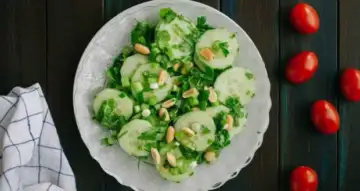 Cucumber is almost all water, making it one of the simplest and most effective foods to reduce bloating. As per an article published in 2024, cucumber has a high water content that helps flush out excess sodium, which is a leading cause of water retention. It also has a cooling effect that soothes the digestive system during humid months. Include cucumber daily as salad, raita, or even on its own to feel light and refreshed throughout the monsoon.
Cucumber is almost all water, making it one of the simplest and most effective foods to reduce bloating. As per an article published in 2024, cucumber has a high water content that helps flush out excess sodium, which is a leading cause of water retention. It also has a cooling effect that soothes the digestive system during humid months. Include cucumber daily as salad, raita, or even on its own to feel light and refreshed throughout the monsoon.
2. Bananas
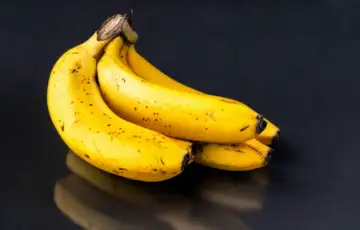 Photo: Unsplash
Photo: Unsplash
Bananas are often thought of as a “heavy fruit,” but they are among the best foods for regulating water balance. According to the Journal Of Medical Pharmaceutical And Allied Sciences, bananas are rich in potassium, which helps counter sodium and prevent fluid buildup. They also provide natural energy and are gentle on the stomach, which can sometimes feel sensitive during damp weather.
3. Watermelon
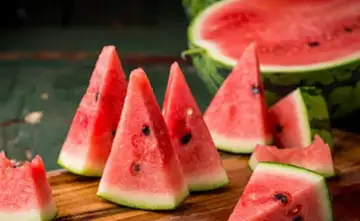 Few fruits feel as satisfying in the rain as watermelon. Juicy, refreshing, and packed with water, it helps your body flush out excess fluid through urination. Watermelon contains natural antioxidants that support digestion and boost hydration, which is particularly useful in sticky weather. A small bowl of watermelon mid-morning is an ideal snack that will not weigh you down.
Few fruits feel as satisfying in the rain as watermelon. Juicy, refreshing, and packed with water, it helps your body flush out excess fluid through urination. Watermelon contains natural antioxidants that support digestion and boost hydration, which is particularly useful in sticky weather. A small bowl of watermelon mid-morning is an ideal snack that will not weigh you down.
4. Coconut Water
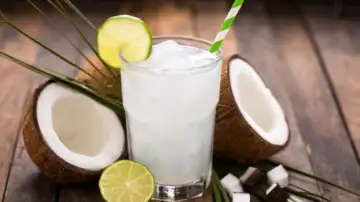 If you are looking for a natural alternative to sugary packaged drinks, coconut water is a smart choice in monsoon. According to a 2021 research paper, coconut water replenishes electrolytes like potassium and magnesium and acts as a mild diuretic, aiding water elimination. A chilled glass in the afternoon can refresh you instantly and prevent bloating.
If you are looking for a natural alternative to sugary packaged drinks, coconut water is a smart choice in monsoon. According to a 2021 research paper, coconut water replenishes electrolytes like potassium and magnesium and acts as a mild diuretic, aiding water elimination. A chilled glass in the afternoon can refresh you instantly and prevent bloating.
5. Lauki (Bottle Gourd)
 Lauki may not seem glamorous, but it is a staple in Indian kitchens and an excellent remedy for water retention. As per a review in the Research Journal of Pharmacology and Pharmacology, bottle gourd is rich in water and light in texture, helping regulate fluids and support digestion. Include it in your diet as lauki sabzi, lauki dal, or even juice.
Lauki may not seem glamorous, but it is a staple in Indian kitchens and an excellent remedy for water retention. As per a review in the Research Journal of Pharmacology and Pharmacology, bottle gourd is rich in water and light in texture, helping regulate fluids and support digestion. Include it in your diet as lauki sabzi, lauki dal, or even juice.
6. Yoghurt
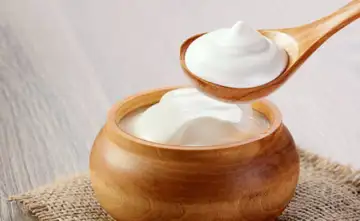 Yoghurt is more than just a cooling food. It is a probiotic that promotes gut health and indirectly helps control water retention. A healthy gut improves digestion and prevents the sluggish, bloated feeling common in damp weather. Have a bowl of plain dahi with lunch, raita with dinner, or a quick yoghurt smoothie in the morning to stay comfortable during the rainy season.
Yoghurt is more than just a cooling food. It is a probiotic that promotes gut health and indirectly helps control water retention. A healthy gut improves digestion and prevents the sluggish, bloated feeling common in damp weather. Have a bowl of plain dahi with lunch, raita with dinner, or a quick yoghurt smoothie in the morning to stay comfortable during the rainy season.
7. Green Tea
 If you prefer warm comfort in the rain, green tea is an excellent option. A 2019 research paper states that green tea is a natural diuretic, helping the body eliminate excess water while boosting metabolism. Its antioxidants further support digestion and immunity, both of which can feel compromised in monsoon. A cup of green tea in the evening can calm your system and reduce puffiness and heaviness caused by fluid retention.
If you prefer warm comfort in the rain, green tea is an excellent option. A 2019 research paper states that green tea is a natural diuretic, helping the body eliminate excess water while boosting metabolism. Its antioxidants further support digestion and immunity, both of which can feel compromised in monsoon. A cup of green tea in the evening can calm your system and reduce puffiness and heaviness caused by fluid retention.
Drinks To Avoid During Monsoon If You Have Water Retention
Just as some drinks help reduce water retention, others can make it worse:
- Sugary Sodas: High sugar content adds empty calories and slows fluid balance.
- Excess Alcohol: Causes dehydration followed by fluid retention as the body tries to recover.
- Too Much Coffee: Mild diuretic effect but leads to dehydration if consumed in excess, triggering water retention.
How To Add These Foods To Your Monsoon Diet
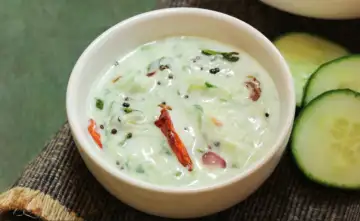 The easiest way to benefit from these foods is by incorporating them into daily meals. Include cucumber and yoghurt as side dishes with lunch, snack on a banana or watermelon, and sip coconut water in the afternoon. Lauki works well in curries, dals, or light juices. Replace one cup of regular tea with green tea to experience noticeable relief from bloating. Small, consistent changes can make a big difference.
The easiest way to benefit from these foods is by incorporating them into daily meals. Include cucumber and yoghurt as side dishes with lunch, snack on a banana or watermelon, and sip coconut water in the afternoon. Lauki works well in curries, dals, or light juices. Replace one cup of regular tea with green tea to experience noticeable relief from bloating. Small, consistent changes can make a big difference.
Sample Monsoon Diet Plan To Reduce Water Retention
- Breakfast: Yoghurt smoothie with banana
- Mid-Morning: A small bowl of watermelon
- Lunch: Lauki sabzi with cucumber salad
- Evening Snack: Green tea with a light homemade snack
- Dinner: Dal with lauki and plain yoghurt
5 Lifestyle Tips To Reduce Water Retention During Monsoon
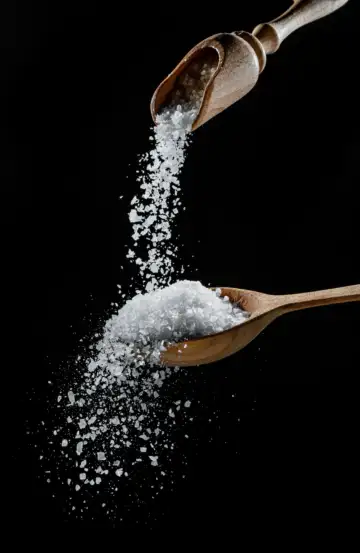 Food helps, but lifestyle habits ensure lasting results:
Food helps, but lifestyle habits ensure lasting results:
- Cut Down On Extra Salt
Pickles, namkeens, and fried snacks are tempting but packed with sodium, the biggest trigger for water retention. - Stay Active Despite The Rains
If outdoor walks are not possible, do light indoor stretches, yoga, or simple cardio to keep circulation going and fluids moving. - Hydrate Smartly
Drink water at regular intervals instead of gulping large amounts at once. Spreading hydration throughout the day helps maintain fluid balance. - Go Easy On Fried Foods
Pakoras, samosas, and deep-fried snacks overload your body with salt and fats, making puffiness worse. - Eat More Potassium-Rich Foods
Bananas, spinach, and coconut water naturally counter sodium and should be part of your monsoon diet.
Is Water Retention Common In Monsoon?
Yes, humidity, dietary changes, and less activity make it common during the rainy season.
Which Fruits Reduce Water Retention Quickly?
Watermelon, cucumber, and bananas are excellent choices.
Does Drinking More Water Help With Water Retention?
 Yes, but drink small amounts regularly rather than a large quantity at once.
Yes, but drink small amounts regularly rather than a large quantity at once.
Are Diuretics Safe For Water Retention?
Natural diuretics like green tea and coconut water are safe, but consult a doctor before using medication.
Include these foods and habits in your daily routine to feel light, healthy, and comfortable during the rainy season.
